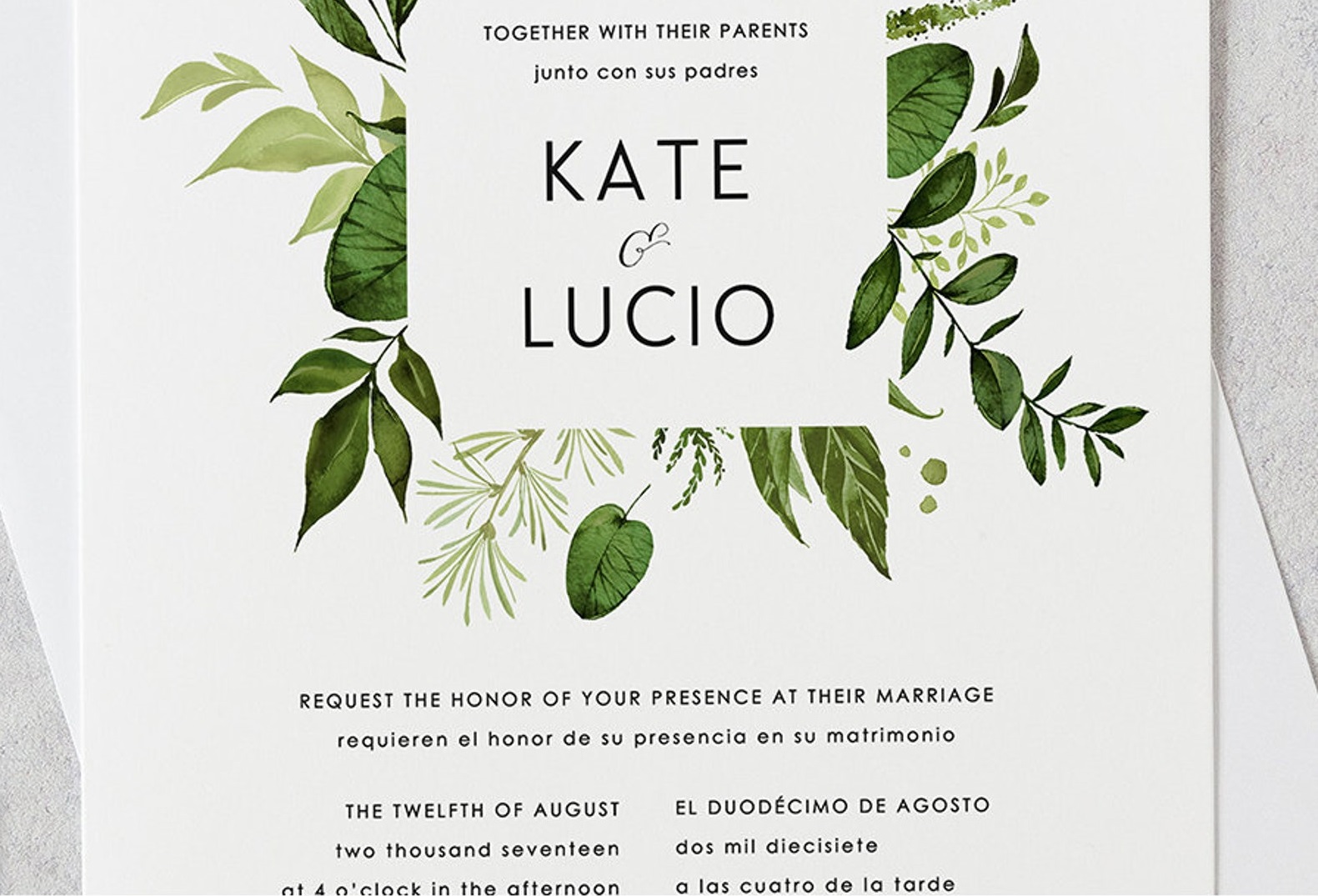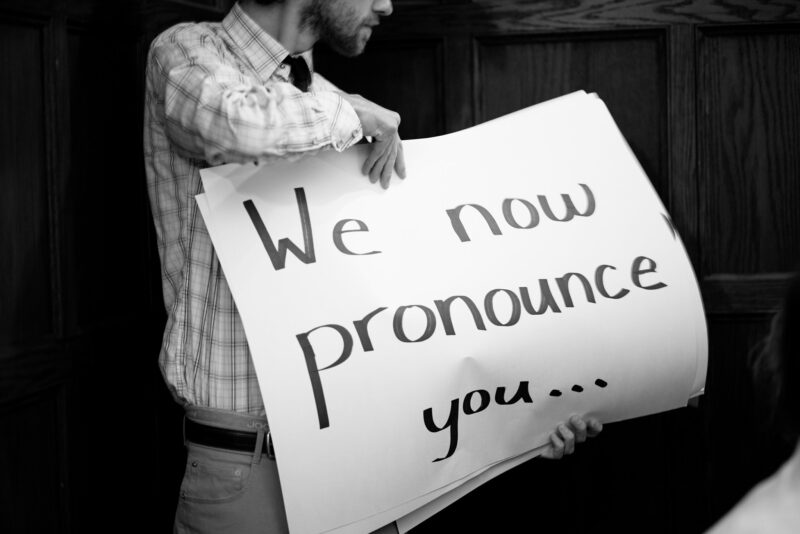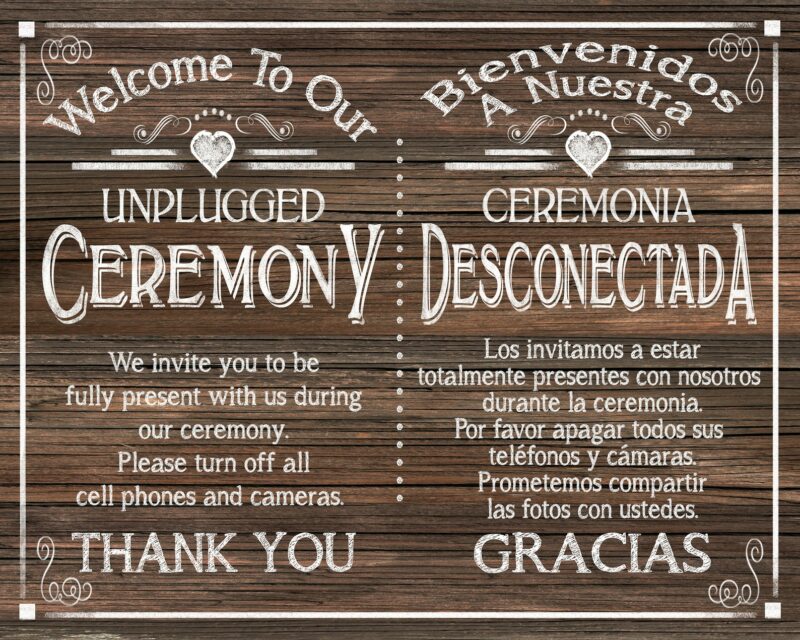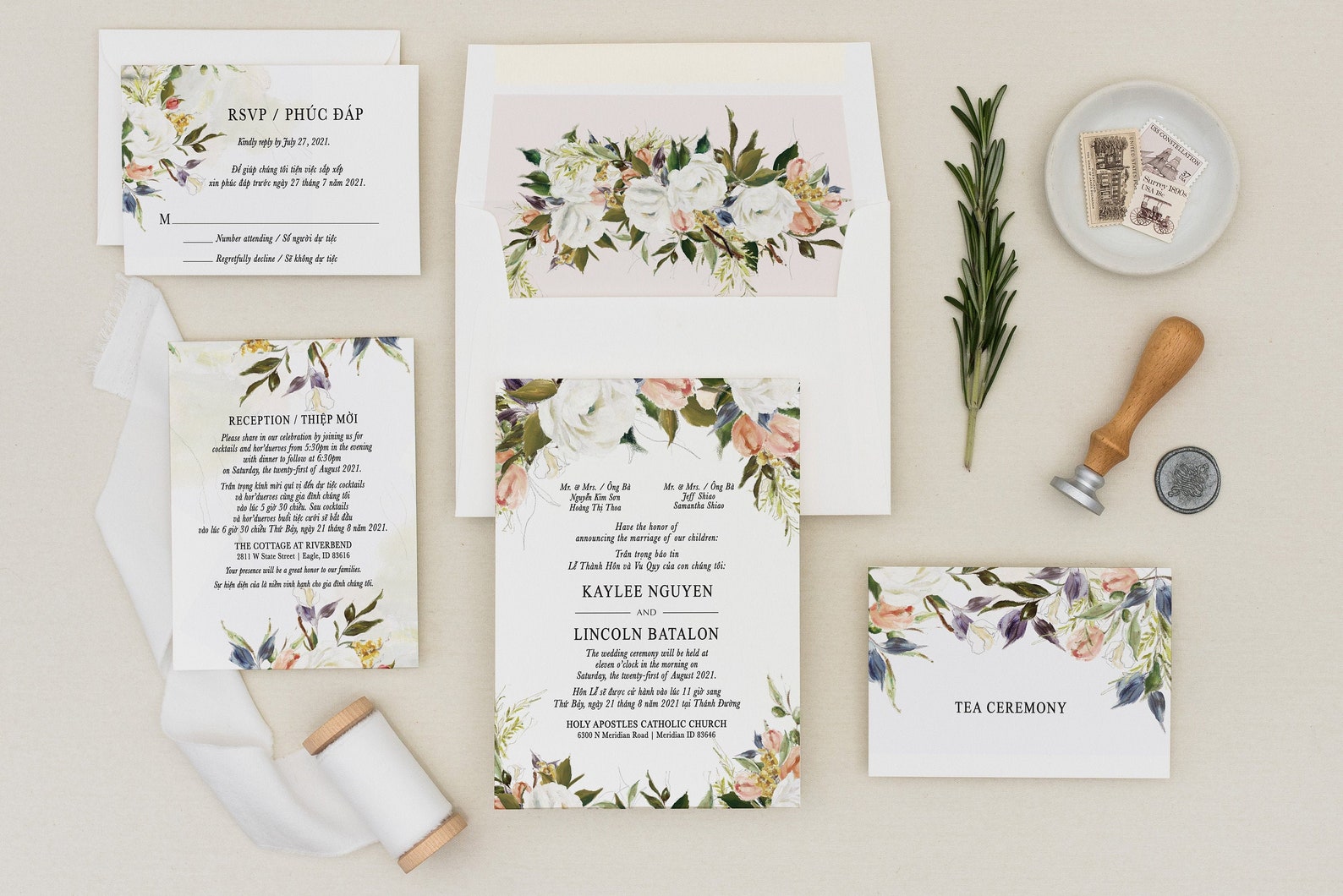
My future husband's family speaks multiple different languages, but none of them are English. We are inviting his immediate family (a total of about seven people) to the wedding. But most of the people who will be in attendance only speak English.How do I help my husband's family not feel so left out when the whole ceremony is in English? Our wedsite is in English. And the vows are in English.I am going to include translated invitation enclosures written in their various languages for their individual invitations. But I don't know what else to do!
Anyone have any ideas on how we can deal with the multiple language barriers? -Rose
If you're dealing with similar issues, including guests with lots of different nationalities and a lot of nonnative speakers, here are some practical bilingual wedding ceremony suggestions:
- If it fits in your budget and your husband's family shares at least one common language, hire an interpreter! This could be either just for the ceremony or for the whole ceremony and reception.
- If that's not in your budget, have different language versions of save the dates and invitations — you could send these out electronically to save money
- Ceremony and speeches in English, with reading(s) in other languages
- Different language versions of your programs (printed out) explaining what exactly is going on
- Signs in multiple languages
- Ask your multi-lingual friends to be proactive in walking around and facilitating conversations
- Use music and other non-verbal clues to mark some moments, such as entrance/exit, end of the seated dinner etc.

We also love these bilingual wedding ceremony ideas from Offbeat Bride readers:
We are going to have a link to all of the (important) info in French on our wedsite, a French reading during our ceremony and I'm going to surprise my fiance and his family by giving a (practiced) toast in French. I'm also going to take French lessons so I can have at least one full conversation with each of his family members who only speak French. Hopefully they will go easy on me and realize I'll still be learning, even 1.5 years from now! Luckily, my maid of honor, our best man, my fiance and his immediate family all speak both French and English, so it makes my work a little easier. (Yes, all of that is coincidental) I feel like such the n00b who speaks only English! -Kelly
What if you had the BIG MOMENTS of the ceremony translated on poster boards, that someone could hold up during the ceremony. It could be as simple as “I do” and the words of the moment you're pronounced. This lets those guests really live that moment. While they may be familiar with the pacing of a typical marriage ceremony, it would probably be a gesture that would really help them feel included. -Dootsie

My family is Polish, but only about 5 people will speak Polish at the wedding (3 are completely non-English). We decided that the whole day will be in English, but we're going to incorporate Polish words throughout our day. Old wine bottles will be used as pitchers (see this: http://younghouselove.com/wp-content/uploads/wedding/wedding-drinks-16.jpg) and under “Water” we'll have the Polish word “Woda”. We'll have chalkboard menus, and most of it will be written in Polish underneath. Our dinner is going to be English, but we're going to have a hot midnight snack that incorporates some Polish food into it.
For us, it's all about the little things, as opposed to the big things -Roma

As someone who lives in a country where my everyday language is fine but I would be lost at something like a wedding, I would advocate:
- A schedule of events in multiple languages. (There's nothing worse than having no idea what's happening next, or where I'm supposed to be, or what's happening right now, even.)
- If you are located somewhere where things like restrooms are not obvious, have either multiple-languages signs or no-language signs labeling them.
- Labeling the menu would be very helpful… it's often self-evident, but sometimes it's really not for non-native speakers!
Having been invited to a few events where I don't speak the language well, I go in knowing I'm not going to understand majority of the speaking and am well prepared to either watch closely and guess or do a wee bit of admire-the-decor-and-daydream until it comes to a part that I do understand. The fun is after, eating and drinking with people, and once the wine is flowing it's amazing how many people can bridge language gaps to have a good time. -Steph

My cousin had a bilingual wedding. He is American and his wife is Taiwanese. They married in the US, and her parents and siblings came over. (All 3 siblings spoke at least some English, but the parents did not.) They had completely bilingual programs, and some of the readings and blessings were done in Mandarin as well. Her father did a speech at the reception which her brother interpreted. -Faith
1. Professional Interpreters are amazing and so skilled! If inclusion is a big priority for your wedding (I hope it is!), please invest in pros so that all family members can participate fully! A lot of companies who offer multi-language interpreters for events are able to do pretty miraculous work no matter what, but it helps to have a few planning sessions, provide as much of the content in writing ahead of time so they can prep, and see if they offer an option to use devices or apps people can connect to their earbuds/phones to hear the interpretation as clearly as possible. And use microphones to make it easy for Interpreters to hear what's being said!
2. Try to incorporate some of these family or friends who are speakers of the other languages to participate a little too so their voices are heard in their native language. Make them the cultural ambassadors of the wedding! This could be by selecting and leading a reading (which can also be translated ahead of time in the other languages) or leading a cultural aspect of the ceremony.
3. I'll echo the inclusion of songs, food, traditions, etc that many folks have mentioned here too! Our wedding Mariachis offered to play some more contemporary songs in English but we told them to prioritize the traditional songs so that our families would feel more comfortable and our friends would get to see and hear something they might not have ever experienced otherwise! My spouse is a musician so all the other music in the wedding was local Austin artists so that too was a treat and new experience for our families.
4. Consider giving folks some language guidance on your wedding website… you could even do this a little like mad libs… like, “here are 3 phrases to practice before the wedding: Hello, I am _____(your name), I am_____ (relation to spouse 1 or 2). What is your name? Nice to meet you ______ (name of the person you just met)”.
5. Consider including the unique characters of your wedding on your website. Ours had a “Wedding People” section which featured photos of family members and friends who had a role in our wedding and little tidbits about them and what they meant to us. We even had a few inside joke hints that we knew would be conversation starters.
We also didn't have a seating chart because that was 1 thing I refused to do! But it resulted in family and friends who didn't know each other sitting near each other so they would all get out of their little comfort bubbles and interact with new people! -Nicole
Also, we recommend perusing our bilingual wedding archive, full of great suggestions like:






As someone who lives in a country where my everyday language is fine but I would be lost at something like a wedding, I would advocate having a schedule of events in multiple languages. There’s nothing worse than having no idea what’s happening next, or where I’m supposed to be, or what’s happening right now, even. Also, if you are located somewhere where things like restrooms are not obvious, have either multiple-languages signs or no-language signs labeling them.
Having been invited to a few events where I don’t speak the language well, I go in knowing I’m not going to understand majority of the speaking and am well prepared to either watch closely and guess or do a wee bit of admire-the-decor-and-daydream until it comes to a part that I do understand. The fun is after, eating and drinking with people, and once the wine is flowing it’s amazing how many people can bridge language gaps to have a good time. Labeling the menu would be very helpful, as though it’s often self-evident sometimes it’s really not. Hopefully your guests will realize that it is the thought that counts with the ceremony and so long as they are well included in the reception after they should still have a great time.
I am an mainly anglo WASP. My fiancee is Russian Jew (racial not religious) so his whole family speaks Russian and many speak Hebrew but other then a few of his family members no one is completely fluent although they can speak some english. This includes his mom, nice conversation about weather or work all good, her only son’s wedding not so much. We are having a completely bilingual everything. Ceremony will be conducted by someone completely fluent (and then the papers signed by a minister who is not because there is no one who can do both) and all written materials will be english on one side and Russian on the next. Readings and speeches will be uni-lingual and no one will be asked to speak in a language they don’t know. His family said this is not necessary (which is in part because ex-soviets are pretty unaccustomed to this big party thing, well that and they are AMAZING.)
Right enough about us, YOU. As someone who has taken party in many ceremonies and traveled alone in many places where I speak not a single word of the language (although knowing 2 and 1/2 languages) things to entertain people and to read are the key.
I have done a full day walking tour in German where all I had was a brochure covering what the guide way saying and a considerate guide. Yes I felt a little left out when they laughed together but I also got to experience the particular joy of learning the word “Rathaus” for the first time all alone and sharing that joy to those with broken english. Just make it clear that they will be coming to an english ceremony and they will prepare themselves. Plus broken language drunken conversations are some of my favorite memories ever!
The other component is we are having a dancing alternative of a TON of boardgames. We are putting a focus on no-language barrier games for example Ghost Blitz (http://tinyurl.com/kv9fwst) where instructions will be in both languages and after that point age, and language don’t matter. Many German and Canadian board games are excellent for this. Also to get us to kiss people will have to say something in their non-native language ( Russian or English or Swahili!) giving opportunities for people to participate is the easiest way to make sure they have the opportunity to feel included.
A little off topic, but what Canadian board games are you speaking of? Thanks!
My parents are from two different countries. Both speak English as a second language, but most of their families do not. Neither of my parents speaks the other’s language. They got married in my mom’s home country and my dad looks SO CONFUSED at some points in the wedding video. I asked him about it once and he said he was so touched by how welcoming everyone was that at the time, he didn’t feel overwhelmed but that looking back he can see he was freaking out a little.